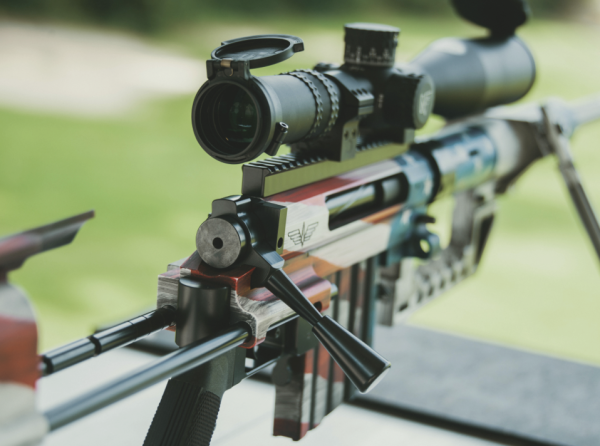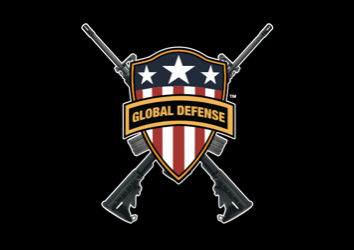Admit it or not, this administration is at war against the firearms and ammunition industry.
The attacks have been unrelenting, from Operation Choke Point (begun under the Obama Administration) to the latest ill-intentioned act: the “90 day pause” on non-military exports by the Commerce Department. A “pause” that will, barring some sort of near-divine intervention will become a permanently limiting rule to limit legitimate U.S. companies of opportunities in the international marketplace.
The anti-industry campaign was somewhat more subdued during the Trump administration, but has been “pedal to the metal” since the President Biden described the industry as “the enemy.”
On Friday, we told you the move was coming and to anticipate protestations by politicians and industry officials.
Those protestations arrived - after the embargo placed on the information by the Commerce Department. That’s one problem with being on the side that appears to be losing the culture war. This side is concerned with following the processes -the administration isn’t the least bit concerned with processes, they’re focused on results.
That Commerce Department’s news embargo was totally in keeping with the Friday news dump theory, i.e., tell news outlets (and the opposition) to sit on information until the bureaucrats have time to make themselves scarce for the weekend.
By Monday, the story will have largely lost impetus and public outrage will have diminished.
No different from slow-boiling a frog. In the end the frog- or in this instance, the firearms industry- is as thoroughly cooked as a Christmas goose in a 425-degree oven.
On Friday, I talked with officials of two companies that have already being burned by the “pause.”
I couldn’t talk to a third. It had already closed its doors after a multi-million dollar, multi-year contract supplying components to a significant gun manufacturer fell victim to the 90-day pause that’s already lasted more than six months.
With the announced public comment period before Commerce formalizes the rule as permanent, others small businesses will likely suffer the same fate.
Going out of business is traumatic. Being forced out of business because of politics must be doubly galling.
Senator Bill Hagerty (R-TN) represents two of the companies I reference, CheyTac USA in Huntington, and the now-shuttered Pioneer Machining, formerly of Celina. He’s also a member of the Senate Appropriations Committee- a Committee that wasn’t consulted nor notified by the Commerce Department regarding the decision to make the pause permanent.
He was quick to decry the proposal as a rule that would “destroy U.S. jobs and small businesses that support the firearm/ammunition industry.” Hagerty also described the proposal as “another Operation Choke Point- a politically motivated effort to limit Americans’ 2nd Amendment rights.”
Hagerty says he’ll push for Congress to overrule the measure.
The problem facing small businesses isn’t that Hagerty’s description is wrong or his course of action incorrect. The problem is that small businesses have neither the time nor the resources to hold out through a protracted political fight.

Speaking with Brenda Dorne, CEO of CheyTac USA, the frustration was undisguised. “This is a political disaster,” she told me, “it’s dramatically affected our business by holding up millions in international contracts, but Outdoorsman Precision was a vital supplier of components for us on a new project. The owners are great people and they did amazing work. But the pause just bled them to death.”
CheyTac USA makes long distance rifles that are widely regarded by law enforcement, military and long distance shooters as among the finest available in the world. That gives this small Tennessee business a higher profile than many of the other small companies that makeup the overall domestic firearms industry.
“We are in an ideological war,” she told me, “we have to find a stopping point to all this madness.”
She’s not alone in her assessment.
Larry Keane, the National Shooting Sport Foundation’s Senior VP and General Counsel calls the latest move one that demonstrates “The enmity of the Biden Administration against the firearms industry and Second Amendment rights is without parallel.”
Keane also calls it another shot taken at the industry to “cozy up to special-interest gun control donors” but it’s another descriptor he uses that should concern everyone in the industry.
According to Keane and the NSSF, the latest rule “entrenches their ‘whole of government’ attack” and intent to “hobble the firearms industry’s ability to compete in the international market under “the false pretense of advancing U.S. security.”

The costs are mounting. In an exchange with Jordan Young, CEO of Global Defense, an Importer, Exporter and Wholesale Distribution company headquartered Pompano Beach, Florida, I learned that what Young called the “continuous and unrelenting attacks by unlawful rulemakring and punitive adverse administrative actions” were making it “almost impossible to operate.”
According to Young, half of Global Defense’s business is export and the pause has already taken “a huge toll.” Today, Young, Dorne and other senior officers in companies being impacted by the pause tell me that international buys aren’t happing like in the past. Instead of making orders, foreign buyers are saying “let’s see what happens” reminding the American companies “we can buy from other countries.”
That’s in direct contradiction to the response given by Commerce Department officials on Thursday when they were asked about the potential for countries “backfilling” orders paused by Commerce with equipment from other countries; with China specifically referenced.
According to those Commerce briefers, “the superior quality of U.S. firearms compared to the Chinese quality” would result in no backfilling.”
I’m not putting much stock in any information from Commerce, or any other Department these days, especially when it doesn’t jibe with information I’m getting from people who are already being impacted.
Here’s the information I believe. It’s from Adam Naylor, former co-owner of Pioneer Precision:
“Our business was forced to close last month with over $1,000,000 in open orders that were either put on hold or completely canceled as our OEM customers’ sales declined during the BIS pause. That’s 8 jobs lost in a distressed community, $600,000 in hard cash investments, $1,000,000 of unsecured loans unable to be repaid, $1,500,000 worth of capital equipment surrendered to banks.”
“Before the Pause, we invested roughly $2,000,000 into an expanded facility and additional equipment to support our projected growth. After the Pause our large OEM customer had to halt or cancel open orders, and were unable to fulfill on future commitments made to Outdoorsman based on pre-pause sales. Sales projections from our primary OEM customer were $5-7m per year, which justified our investments made.”
The Commerce Department’s going to dismiss this kind of information, and their reason for that is based on the “threshold” of a legislation/regulative acts impact. The threshold on this kind of action isn’t $50 million, or even the $100 million number presumed to be the number by the industry. In February of 2023, with little fanfare, the Biden Administration doubled the threshold from $100 million to $200 million.
Despite that higher threshold, the industry already estimates the impact at more than $258 million dollars.
According to the NSSF, these are the most significant changes proposed under the new rule:
Export licenses will be reduced from a four-year lifespan to one year;
There will be three new Export Control Classification Numbers (ECCN) for semiautomatic rifles, pistols, and shotguns,
Licenses will be approved on a case-by-case basis that will consider foreign policy, national security risk factors, government corruption, diversion of firearms and human rights abuses -“among other criteria.”
BIS also says there will be a “presumptive denial for firearms export licenses to those countries arbitrarily identified by the State Department as ‘at risk,’ which include 36 countries- mostly in Latin America, the Caribbean and Southeast Asian countries.”
This is not the first shot in a war between two ideological extremes. It’s only the most blatant- to date.
As of this writing, the Department of Commerce has yet to post a link for comments on the proposed rule change.
We’ll keep you posted.
— Jim Shepherd